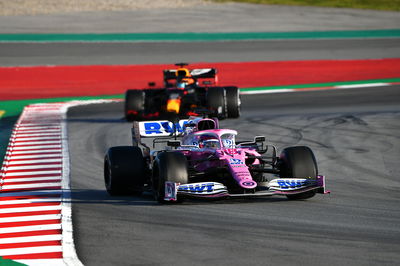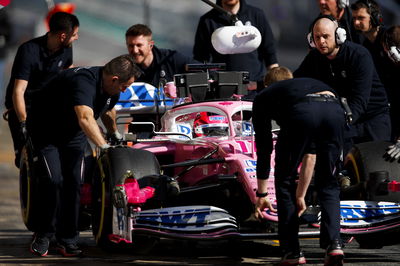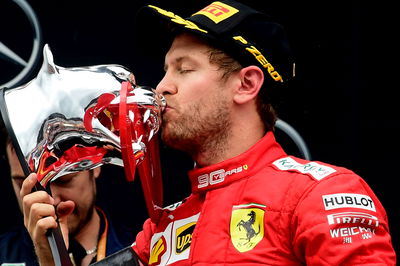New F1 cost rules will end ‘dinosaur’ big team operations
Formula 1’s new financial regulations will end the need for big team operational approaches and help level the playing field in the sport, according to Racing Point technical director Andrew Green.
A major package of cost-cutting changes - including a $145m budget cap for 2021 - is set to be ratified by the FIA World Motor Sport Council and introduced after gaining approval from the teams.

Formula 1’s new financial regulations will end the need for big team operational approaches and help level the playing field in the sport, according to Racing Point technical director Andrew Green.
A major package of cost-cutting changes - including a $145m budget cap for 2021 - is set to be ratified by the FIA World Motor Sport Council and introduced after gaining approval from the teams.
The cost cap will force F1’s leading three teams to significantly reduce spending and is likely to lead the likes of Mercedes, Ferrari and Red Bull to make cuts to its staff numbers.
McLaren announced this week it will make 1,200 redundancies as part of a major company-wide restructure that will result in around 70 job losses for the F1 team, while Red Bull team boss Christian Horner has suggested his side will be forced to redeploy some staff.
Racing Point will rebrand into the Aston Martin F1 team from next season and is aiming to close the large performance gap that currently exists between the top three and the rest of the grid.
Asked if the team will need to expand its operation in order to win races, Green told F1’s Beyond the Grid podcast: “A year or so ago you would have said yes, but not now.
“Not in the current climate and not with the regulations that are coming in, starting in 2022. I think those teams now are dinosaurs and you’ve got to be small, lean and efficient.
“As far as the financial side of the regulations are concerned, I think they are coming to us. They are definitely going to allow us to compete with what used to be big teams, because they can’t be big teams anymore.
“They are going to have to come down and get much closer to our level. We’ve been doing it for years and we’ve been at this level for years.
“We do a reasonable job at it, by no means do we do it the best, and we could do it better, but we have been doing it a long time and I think we have put systems and groups in place that know how to work in a cost-driven environment, and I think that’s going to help us.
“A few years ago I would have been turning around to Lawrence and saying ‘we need a new factory, 900 people and our own wind tunnel, we need to bring an army if we are ever going to compete’. But that’s not the case anymore.”

Green said the transition into becoming a works squad will be a “monumental change” for Racing Point but insisted the Silverstone-based outfit will retain its operational philosophy of being one of the most efficient teams on the grid.
“It’s completely changed the way we think,” he explained.
“It hasn’t really changed the way we operate at the moment, because we’ve always focused on being the most efficient team on the grid and we will continue to focus on being the most efficient team on the grid.
“I think now with the introduction of the cost cap, I think that really does help us. But the change to Aston Martin for next year is going to be massive.
“We haven’t really turned round and focused on that with what’s been happening over the last couple of months, but it is going to be a tidal wave of change that is going to wash over the team.
“We’re now a shop window for Aston Martin and we have to act and work that way. That’s going to be a big challenge to be able to do and still maintain the efficiency that we strive for.”












